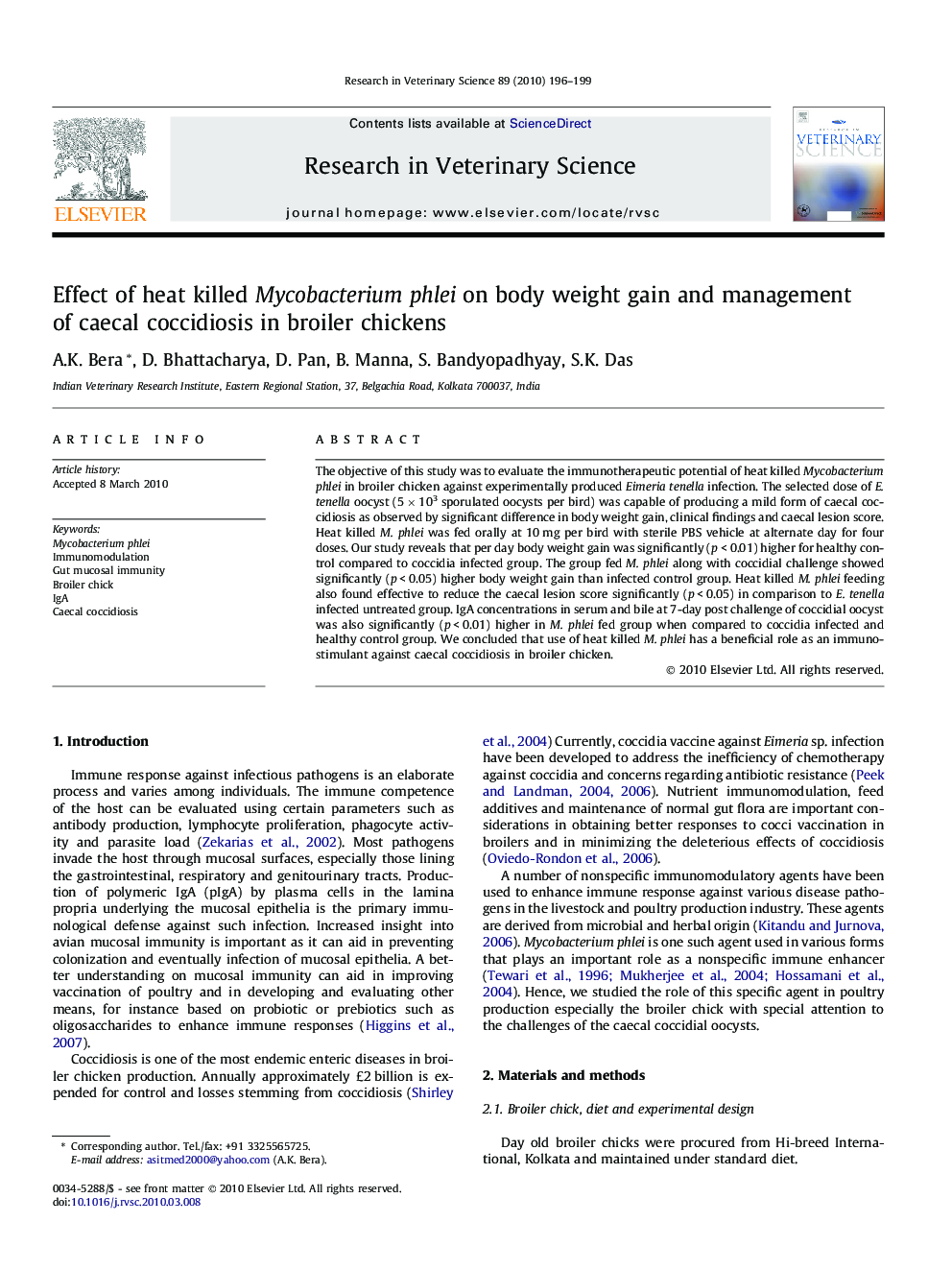| Article ID | Journal | Published Year | Pages | File Type |
|---|---|---|---|---|
| 2455815 | Research in Veterinary Science | 2010 | 4 Pages |
The objective of this study was to evaluate the immunotherapeutic potential of heat killed Mycobacterium phlei in broiler chicken against experimentally produced Eimeria tenella infection. The selected dose of E. tenella oocyst (5 × 103 sporulated oocysts per bird) was capable of producing a mild form of caecal coccidiosis as observed by significant difference in body weight gain, clinical findings and caecal lesion score. Heat killed M. phlei was fed orally at 10 mg per bird with sterile PBS vehicle at alternate day for four doses. Our study reveals that per day body weight gain was significantly (p < 0.01) higher for healthy control compared to coccidia infected group. The group fed M. phlei along with coccidial challenge showed significantly (p < 0.05) higher body weight gain than infected control group. Heat killed M. phlei feeding also found effective to reduce the caecal lesion score significantly (p < 0.05) in comparison to E. tenella infected untreated group. IgA concentrations in serum and bile at 7-day post challenge of coccidial oocyst was also significantly (p < 0.01) higher in M. phlei fed group when compared to coccidia infected and healthy control group. We concluded that use of heat killed M. phlei has a beneficial role as an immunostimulant against caecal coccidiosis in broiler chicken.
